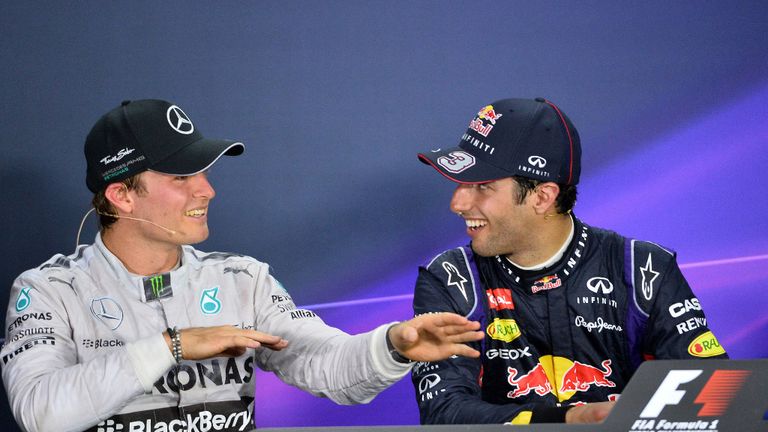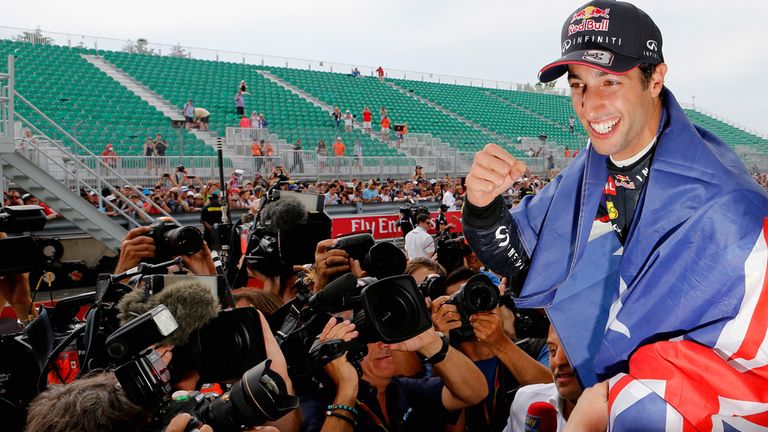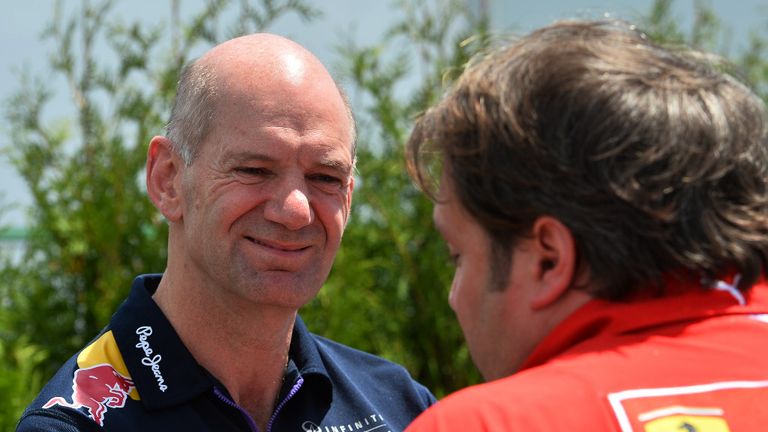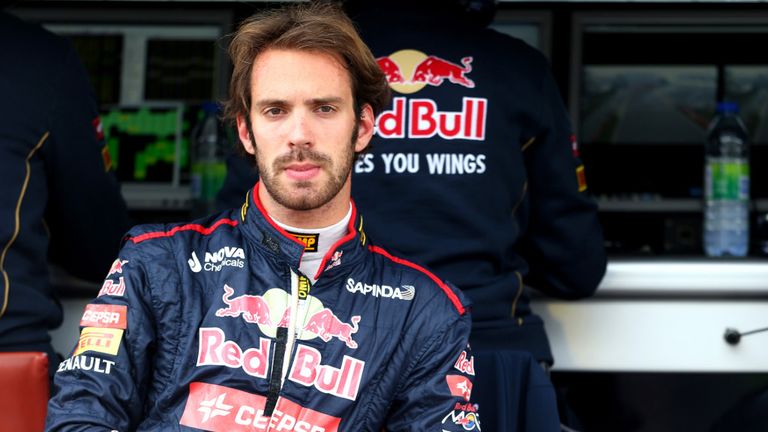Conclusions from the 2014 Canadian GP
Ricciardo seals his emergence as the real deal, Nico profits from another mistake, and Newey signals time on an old era
Monday 9 June 2014 18:22, UK
Ricciardo joins the elite
For once, it genuinely couldn’t have happened to a nicer fellow. There is unlikely to have ever been a more popular first-time winner in F1 than Daniel Ricciardo, the ever-smiling, ever-polite young Australian whose pace and personality added up to a winning combination that nobody could begrudge on Sunday night.
Ricciardo had probably already done enough in the first six races of 2014, in which he had consistently out-paced and out-scored Sebastian Vettel, the fallen tyrant of F1, to confirm himself as a star of the future. In Montreal, he was elevated to a star of the present, his status as the real deal signed, sealed and delivered with emphatic and impressive opportunism. The race might have fallen his way, but it fell the way of several others, including the World Champion himself, and yet it was only Ricciardo who took the opportunity, snatching victory out of Nico Rosberg’s grasp just a lap after passing the worn-out Sergio Perez.
What others may have choked on, Ricciardo gobbled up. This is a driver destined for greater things.
Rosberg finds lady luck an advantageous companion
In the grand scheme of things, and with 2014 yet to reach the halfway stage, Lewis Hamilton’s 22-point deficit to Nico Rosberg is significant but not yet substantial. Measured in the old money of F1’s former points-scoring system, it amounts to a modest-sounding nine points. Squared with the format fudge of Abu Double, it’s less than half the points the race victor will earn in the final race of the season. It’s troublesome, but no more than that.
Yet Hamilton ought to be troubled by the impression that momentum and luck, a sportsman’s favourite companion and sport’s most fickle protagonist, has joined sides with Rosberg. The German rode his luck on Sunday, avoiding a warranted penalty and narrowly avoiding a slidey leer into a wall as the pressure told, but he also drove with great intelligence and accuracy in the final stages to nurse his ailing car to the finishing line. According to Mercedes, the loss of straight-line horsepower in his W05 was on a par with the total power an average road car boasts.
In the final reckoning, as he registered a seventh successive podium finish, Rosberg was as much a winner as Ricciardo, claiming eighteen points over his solitary title rival on a day, and at a circuit, where Hamilton was clearly faster. Did they ever film a sequel of The Great Escape? They have now.
Rosberg is developing a curious capacity for benefitting from making mistakes under pressure. In Monaco, his qualifying error prevented Hamilton claiming a likely pole position from where victory was a near certainty. This weekend, he cracked again, and benefited again, as he missed the chicane to suddenly slip clear of Hamilton and out of the DRS noose.
Despite misinformed opinion to the contrary, the rulebook offers scope for the stewards to have imposed a penalty in the circumstances. Article 20.2 of the Sporting Regulations emphatically declares that any driver who leaves the track can only rejoin when ‘it is safe to do so and without gaining any advantage'. Rosberg’s advantage was multi-layered: not only did he gain in excess of half a second over Hamilton, but he broke out of the DRS zone just when Hamilton had built up a convincing head of steam and kept track position over his team-mate – the difference, perhaps, between Hamilton’s brake problem becoming terminal and Rosberg’s own issue remaining manageable. “The thing is I was following him and when you are following someone you are getting more heat - he was in clean air the whole time in front,” a forlorn noted Hamilton.
Expecting the stewards to have foreseen any such possible cause and effect association as they adjudged Rosberg’s transgression would be too much. But it is reasonable to expect the stewards to have been aware of recent history at the Circuit Gilles Villeneuve and the fact that the winning margin in three of the last four races at the venue had been less than three seconds. Every tenth matters in Montreal and for the stewards not to have viewed Rosberg’s beneficial infringement from that established perspective was the most curious aspect of a very curious business all round.
Newey sails away to end an era
Although the news of Adrian Newey’s contract extension with Red Bull was, understandably, dressed up as reason for celebration by the team this weekend, any doubt that the sport’s foremost technical genius is preparing to sail away was cleared up on the Montreal grid. "I am looking forward to some different challenges, I've had a great time in Formula 1, but it is time to get involved in different things," Newey told Martin Brundle.
With Ross Brawn gone, and Newey going, the death knell has sounded for the era of the aerodynamicist in F1. With quiet, hybrid efficiency, the sport has moved on to become a sport in which engine power is the new king. There is much to mourn in the passing of the aerodynamicist, the geeky pursuit elevated to coolness by the sleek, peerless creations they dreamt up. But time stands still for no man, not even geniuses, and the Neweys of F1’s former world, have been marginalised by the sport’s decision to chase road relevancy - an impression encapsulated by Newey’s latest offspring, the RB10, trailing the Mercedes by upwards of a second per lap despite being regarded as the most aerodynamically effective car on the grid.
The rules of the game have changed and it appears Newey’s final masterstroke has been to call time on himself just when last orders were being served on him.
Vergne’s timely reminder
Amid the dramatic bedlam of Sunday’s race, it was easy to overlook Jenson Button’s late surge to fourth and Jean-Eric Vergne’s quietly impressive run to eighth. Confirmation that Button will stay on at McLaren for 2015 cannot be too far away. True, the Englishman has his critics, but it’s also true that he has too many. There are a better drivers in F1 but few, if any, are as under-estimated as Jenson. He’s also currently the best thing about McLaren.
Vergne, meanwhile, was long overdue a result. He’s qualified in the top ten on five occasions this season, but Canada marked his first points-scoring result since Australia. If he is to keep his seat with Toro Rosso for 2015, he needs more – quietly impressive performances, and results flattered by two last-retirements ahead of him on the road, won’t be enough. Too easily overlooked over the last two years, and not just on Sunday, Vergne quickly needs to become visible.
PG






